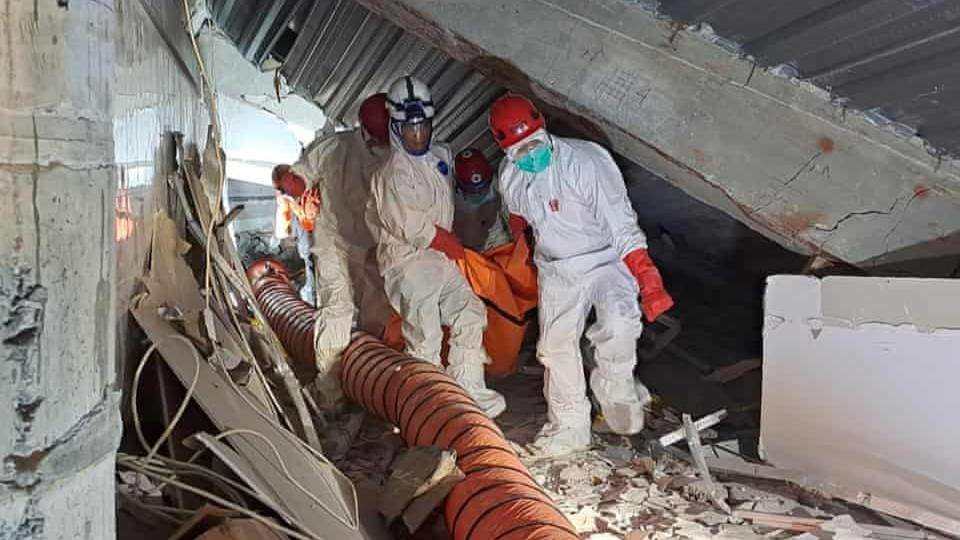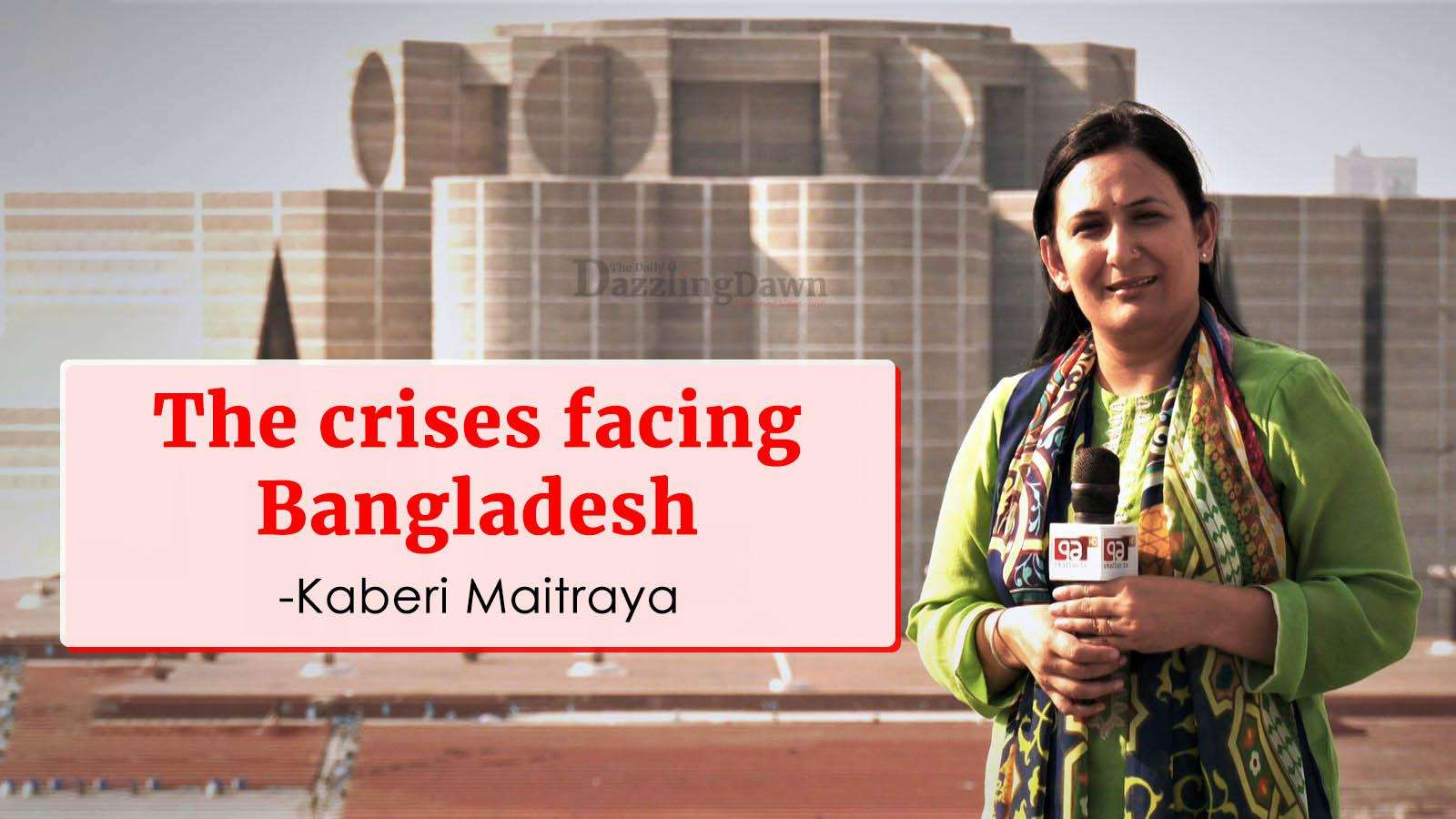The nation has witnessed a procession of deaths. Every act of killing signifies a defeat of humanity. Such perilous paths are undesirable. Partition did not allow the country to stand on its own feet for a long time. Mutual understanding had disappeared.
The reckless display of power is diminishing the situation. Incitement, coercion, and violence are not solutions. They result in killings, national decline, and state damage. Brutality crushes humanity. The tendency to see oneself as victorious in the short term equates to long-term defeat. During national crises, the guardianship of the conscience is crucial. Overcoming the crisis is a collective expectation. There is no room for delay for today's and tomorrow's Bangladesh.
The current political arrangement is failing. There is no representation through the exercise of the people's voting rights. The government, suffering from a legitimacy crisis, relies on the power of state machinery rather than accountability to the people, creating a monopoly of political arrangements through the collusion of' money makers' and 'rule makers.' This has led to a one-party state system. Additionally, there is no constitutional system of checks and balances among the three branches of government (legislature, executive, and judiciary). Power is concentrated in one individual. The state is not accountable to the people.
Without popular sovereignty, ensuring citizens' rights is challenging. The current constitution does not guarantee ‘fundamental rights’ and ‘fundamental principles of state policy’ for the people’s republic. Although recognized as fundamental principles, there is no legal obligation on the state to enforce them. The public has no role in the distribution or budgeting of state resources. The annual financial statement or budget is presented as a finance bill, and discussion in parliamentary committees does not occur. The Finance Minister presents the bill to Parliament, and it is passed without representatives adding new proposals. The constitution does not allow anyone outside the party to vote. The fundamental question remains—National Budget: For whom, why, and how is it determined? How will oversight and accountability of public funds be ensured?
The constitution, repeatedly amended and altered, remains deeply flawed. There is no ‘will of the people’ or social contract between the state and its citizens. Another major issue is that no political party in Bangladesh has ever transferred power to another. The continuity of one-party rule is not political stability. The fractured social contract between the state and its citizens has alienated the government from the people. The current popular movement is not limited to students; this public awakening is a ‘social consent’ for liberation from these three afflictions. The masses have consistently engaged in demands for justice. They are unwilling to perpetuate conflict. Resolution of the conflict lies in a new political arrangement—a new social contract, i.e., a new constitution. This demand is rooted in the foundational principles of the liberation war, namely equality, human dignity, and social justice. The nation has repeatedly changed itself. For instance, France operates under the Fifth Republic, and the United States adopted a new constitution in 1787 after the Articles of Confederation proved inadequate for the young nation. This is the world's oldest written constitution, still in effect. Initially, the convention’s mandate was to amend the Articles of Confederation, but it led to the Virginia Plan, the New Jersey Plan, and eventually the Connecticut Compromise, forming the Constitution. Notably, Alexander Hamilton, John Jay, and James Madison wrote 85 essays under the pseudonym ‘Publius.’ The essence of constitution-making is public debate. A new constitution could be drafted through a convention or constitutional assembly, considering Bangladesh's context. The process can be further debated.
Examples of acceptable national government systems exist in Bangladesh and other countries. In urgent situations, a state can legally function in ways not typically allowed by the constitution. Bangladesh had a precedent in 1991. Conventions are social norms, unwritten agreements that are universally adhered to and agreed upon to solve specific procedural issues.
Bangladesh’s economy has pathways to overcome current challenges. There is no place for despair here. However, the current political arrangement is obstructing solutions. Without changing the political environment, these challenges cannot be addressed. Bangladesh’s institutions are trapped in a status quo or stagnation. Due to the dominance of factionalism, creative solutions are elusive.
The fundamental principles of a country's development policies arise from the aspirations created by the people’s struggles. In that sense, a country’s developmental aspirations are shaped by the type of society its people desire. This transformation is deeply embedded in the economy, society, and politics. Therefore, the inherent conflict between aspirations and impositions remains.
The economy is in a crisis. Every indicator shows a decline. The gap between prolonged inflation and real wages is widening. The increase in prices is crushing not just those below the poverty line but also the lower and fixed-income groups. Inequality is worsening, affecting the lower-middle and middle-middle classes significantly. Youth are being pushed into uncertain paths rather than being transformed into productive labor. The middle strata of society are fracturing. Similarly, businesses, especially small enterprises, are hit by rising costs. While food prices are increasing, farmers do not benefit, with middlemen reaping the rewards. Farmers struggle to make ends meet, often relying on debt. The government, burdened with debt, is in a severe financial crisis. With reduced income, it is struggling to pay its dues. Foreign exchange reserves are low, and the value of the taka against the dollar is continuously falling, creating a deep economic downturn. The economy is in an ICU under the IMF bailout package. Although the IMF imposed conditions, it did not address the core issue of the corrupt political arrangement.
International institutions are now silent about the ‘development miracle,’ and various credit rating agencies are downgrading the country’s creditworthiness. Due to visible power and authority being centralized, the 'invisible hand' of the market cannot operate effectively.
In a political arrangement where most people are excluded, economic monopolies and political factionalism emerge. Sustainable economic development occurs when accountability and public participation are ensured. On the other hand, when factionalism controls everything, all economic indicators reverse. This has occurred in Bangladesh. Poverty reduction has slowed or increased in some areas; the number of unemployed people has risen; investment-led growth is lacking; and environmental degradation has significantly increased. Whether formal or informal, if institutions fail, the outcome is counterproductive. Consequently, inequality has increased. Authoritarianism is steering society towards injustice.
Alongside the expansion of extractive institutions, the space for competitive, representative political systems is shrinking, obstructing economic transformation. Achieving the full potential of the economy remains distant. Additionally, there is no theoretical or empirical evidence to support the claim that democracy and development are mutually exclusive, as often suggested. Instead, there is public order in those countries.
Without structural reform, the economy will not recover its momentum. Structural reforms must include five pillars: confidence, recovery, reconstruction, social protection, and sustainability. Without such reforms, capital markets and credit systems will not function, and savings or FDI will not increase. Discussions are ongoing about leaving interest rates or exchange rates to the market. However, this theoretical assumption applies only to competitive markets. Leaving things to the market has not worked; rather, it has increased public suffering. The market is also an institution. When wealth and policymakers become intertwined, it creates a factional market that imposes greater hardships on consumers. Comprehensive regulatory reform can transform the market into a trustworthy institution.
Universal education, health systems, and comprehensive life-cycle-based national social security are essential. Fundamental pillars include universal and quality education and health recovery programs. Comprehensive national social security, including universal pensions, unemployment benefits, disability allowances, child support, housing benefits, income support, and health allowances, is crucial for social protection. Job creation, industrialization, export diversification, and productivity and competitiveness enhancement are mid-term strategies. The focus should shift from a consumption-based GDP growth model to sustainable green growth driven by domestic and foreign investment.
Data and statistics cannot be fabricated into stories. Export data has been adjusted. Import, tax, or remittance data is still inaccurate. If accurate figures are not available, how can the GDP be estimated? GDP figures are often approximated, with a large portion coming from surveys or other sources. With erroneous and false data, statistical credibility declines. A comprehensive reform of data and statistics is critically necessary.
--
Writer: Kaberi Maitraya, Senior Reporter, Ekattor Television.




_2.jpg)



.svg)

